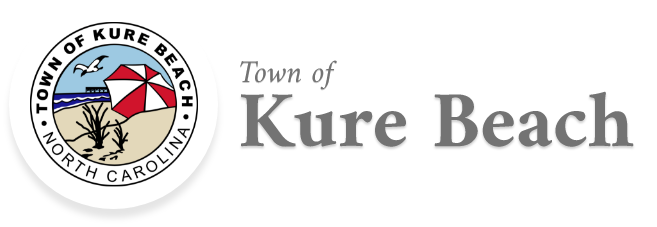Memories Akin to the Sea
MEMORIES AKIN TO THE SEA
By Jennie Kure Robertson Bagley (Born 1917)
My grandfather, Hans Kure, was born in 1851 and raised on an island off Copenhagen, Denmark. My grandmother, Ellen Mueller Kure, before marrying him, was a lady-in-waiting in the Danish court and could speak seven languages. They raised four sons, William L., Lawrence C., Hans A., Andrew E., and a daughter, Elene Kure.
When he came to Wilmington from Charleston, South Carolina in the 1880's, he was retired from a career as a ship's captain. He built Wilmington's biggest ship chandler and stevedore operation. Hans Kure built a beautiful two-story, four bedroom, two bathroom home at 314 Nun St. while he operated his business in Wilmington. Mr. and Mrs. Kure and their two sons, Lawrence and Andrew, lived downstairs, and Hans and his family lived upstairs. Hans was my biological father and worked at the Atlantic Coastline Railroad. He and my mother, Jennie, were blessed with five girls; Ellen, Laura, Jennie, and Dorothy. Hans died in August 1931 and later, in the 30's, Lawrence C. Kure and my mother were married.
In 1900, still having sea water in his veins, he purchased property at Carolina Beach. He built a store which Andrew managed. He built a pavilion, ladies bathhouse, bowling alley, bar, and the Smith cottage.
In 1913, he sold some of his holdings at Carolina Beach and purchased a huge tract of land from Hanby Beach to the gates of Fort Fisher, and from the ocean to the river. The gates were built to keep the cows of Mr. Orrell on his property. It was known as the Kure Land and Development Company that developed Fort Fisher Sea Beach which later became Kure's Beach and when incorporated became Kure Beach.
On December 23, 1914, Hans Kure died leaving his holdings to his wife who later passed them to their five children. L.C. Kure became secretary of Kure Land and Development Company and Hans A. became President.
On January 18, 1916, Kure Land and Development Company deposited $9,300.00 for the balance of the money to build a road from Wilmington to Carolina Beach and on into Kure Beach. That was the road that is now called Dow Road. It cost approximately $4,500 a mile. Hans paid $16,800.00 and the county paid a like sum making it a county highway and the first highway in the state to head directly to the ocean. The road was completed by April 1916 and was one car wide.
Mrs. Kure built a two-story house on Highway 421 leading into Kure Beach and she and Lawrence lived there in the summer.
It was known as Kure's Beach because of the family name. A windmill pumped the water, and electricity came from a gas motor that ran a small dynamo. When darkness approached, the motor was started and we had lights; but at 10 pm lights went out and you used your kerosene lantern if you wanted to stay up. It was a quiet, small community where everyone knew everyone and you didn't even have to lock your doors.
In 1923, L.C. Kure built the first fishing pier on the Atlantic Coast. He cut the trees from the river area to be used as pilings for the pier. In the Fall, the big blues were caught and in the Spring spots, flounder, and many other fish were enjoyed. There were so many people fishing that, if you left your place on the railing, someone eased into it and you were out of luck. The fee for fishing was thirty-five cents per day and an annual fishing permit was $10.00. At the entrance of the pier there was a building with drinks, bait, tackle, etc. Later Jim's Café was opened.
Mrs. Kure died in December 1928 at the age of seventy-seven. In the early 30's, the company was disbanded and the property was divided among the five children.
In 1947, Kure Beach was incorporated and Lawrence Kure was elected the first mayor.
In 1952, Bill Robertson, the husband of L.C. Kure's daughter, Jennie, purchased the pier from L.C. Bill really loved fishing and being in the pier business. He even made photos of the big catches that were sent to all the newspapers in the state. Everyone was familiar with the sign on the front of the ticket office that read, "Man You Should Have Been Here Yesterday." The reputation of Kure Pier made it the place to fish.
In 1954 Hurricane Hazel destroyed the pier completely (note: it was rebuilt after the hurricane). In 1984 Mike Robertson, grandson of L.C. Kure, bought the pier from his father.
